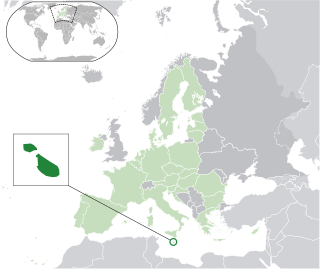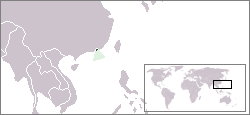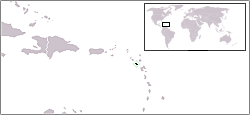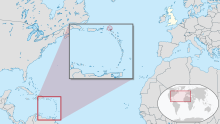
Lesbian, gay, bisexual and transgender (LGBT) rights in Australia have advanced over the latter half of the twentieth century and early twenty-first century to make Australia one of the most LGBT-accepting countries in the world, with opinion polls and the Australian Marriage Law Postal Survey indicating widespread popular support for same-sex marriage. A 2013 Pew Research poll found that 79% of Australians agreed that homosexuality should be accepted by society, making it the fifth-most supportive country surveyed in the world. With its long history of LGBT activism and annual Gay and Lesbian Mardi Gras festival, Sydney has been named one of the most gay-friendly cities in the world.

Lesbian, gay, bisexual, and transgender (LGBT) persons in Cyprus face legal challenges not experienced by non-LGBT residents. Both male and female same-sex sexual activity are legal in Cyprus since 1998, and civil unions which grant several of the rights and benefits of marriage have been legal since December 2015.

Lesbian, gay, bisexual, and transgender (LGBT) rights in Andorra have advanced significantly in the 21st century. Civil unions, which grant all the benefits of marriage, have been recognized since 2014, and discrimination on the basis of sexual orientation is constitutionally banned. The General Council passed a bill on 21 July 2022 that will legalize same-sex marriage in 2023, and convert all civil unions into civil marriage.

Lesbian, gay, bisexual and transgender (LGBT) rights in Malta rank among the highest in the world. Throughout the late 20th and early 21st centuries, the rights of the LGBT community received more awareness and same-sex sexual activity was legalized on 29 January 1973; it was already dormant by the 1890s.

Lesbian, gay, bisexual, and transgender (LGBT) persons in San Marino may face legal challenges not experienced by non-LGBT residents. Both male and female same-sex sexual activity are legal in San Marino, but households headed by same-sex couples are not eligible for the same legal protections available to opposite-sex couples.

Lesbian, gay, bisexual, and transgender (LGBT) persons in Aruba, which is a constituent country of the Kingdom of the Netherlands, have evolved remarkably in the past decades. Both male and female same-sex sexual activity are legal in Aruba, but same-sex marriage is not legal. Same-sex couples with Dutch nationality must travel to the Netherlands or its special municipalities to get married and the legal protection of marriage is not unconditional. Since 1 September 2021, registered partnerships have been available to both opposite-sex and same-sex couples.

Lesbian, gay, bisexual, and transgender (LGBT) persons in the British Virgin Islands face legal challenges not experienced by non-LGBT residents. Same-sex sexual activity has been legal in the British Virgin Islands since 2001.

Lesbian, gay, bisexual, transgender (LGBT) rights in Scotland are generally in line with the rest of the United Kingdom, which have evolved extensively over time and are now regarded as some of the most progressive in Europe. In both 2015 and 2016, Scotland was recognised as the "best country in Europe for LGBTI legal equality".

Oceania is, like other regions, quite diverse in its laws regarding homosexuality. This ranges from significant rights granted to the LGBT community in New Zealand, Australia, Guam, Hawaii, Easter Island, Northern Mariana Islands, Wallis and Futuna, New Caledonia, French Polynesia and Pitcairn Islands to remaining criminal penalties for homosexual activity in 6 countries and one territory. Although acceptance is growing across the Pacific, violence and social stigma remain issues for LGBTI communities. This also leads to problems with healthcare, including access to HIV treatment in countries such as Papua New Guinea and the Solomon Islands where homosexuality is criminalised.

Lesbian, gay, bisexual, and transgender (LGBT) persons in Bermuda, a British Overseas Territory, face legal challenges not experienced by non-LGBT persons. Homosexuality is legal in Bermuda, but the territory has long held a reputation for being homophobic and intolerant. Since 2013, the Human Rights Act has prohibited discrimination on the basis of sexual orientation.

Lesbian, gay, bisexual, transgender (LGBT) persons in Hong Kong, may face legal challenges not experienced by non-LGBT residents.

Lesbian, gay, bisexual, and transgender (LGBT) persons in the Cayman Islands may face legal challenges not experienced by non-LGBT residents. Both male and female same-sex sexual activity are legal in the Cayman Islands. Despite anti-gay attitudes expressed by certain members of the government, social acceptance by the Caymanian public has been known to be some of the best in the Caribbean.

Lesbian, gay, bisexual, and transgender (LGBT) persons in Montserrat face legal challenges not experienced by non-LGBT residents. Same-sex sexual activity has been legal in Montserrat since 2001.

Lesbian, gay, bisexual, and transgender (LGBT) persons in the British Overseas Territory of the Turks and Caicos Islands face legal challenges not experienced by non-LGBT residents. Same-sex sexual activity has been legal in the Turks and Caicos Islands since 2001, and discrimination based on sexual orientation is constitutionally banned.

Lesbian, gay, bisexual, and transgender (LGBT) persons in the Seychelles face legal challenges not experienced by non-LGBT residents. Same-sex sexual activity has been legal since 2016, and employment discrimination on the basis of sexual orientation is banned in the Seychelles, making it one of the few African countries to have such protections for LGBT people. However, LGBT people may nonetheless face stigmatization among the broader population.
Australia is one of the most LGBT-friendly countries in the world. In a 2013 Pew Research poll, 79% of Australians agreed that homosexuality should be accepted by society, making it the fifth most supportive country in the survey behind Spain (88%), Germany (87%), and Canada and the Czech Republic. With a long history of LGBT rights activism and an annual three-week-long Mardi Gras festival, Sydney is one of the most gay-friendly cities in Australia and in the world.

In the U.S. Virgin Islands, Lesbian, gay, bisexual, and transgender (LGBT) rights have evolved substantially in recent years. Same-sex sexual activity has been legal since 1985, and also provides explicit legal protections against discrimination for LGBT residents since December 2022. Following the Supreme Court's ruling in Obergefell v. Hodges on June 26, 2015, which found the denial of marriage rights to same-sex couples unconstitutional, same-sex marriage became legal in the islands.

Lesbian, gay, bisexual, and transgender (LGBT) persons in the British Overseas Territory of Akrotiri and Dhekelia enjoy most of the same rights as non-LGBT people.

Lesbian, gay, bisexual and transgender (LGBT) people in the British Overseas Territory of the Pitcairn Islands enjoy most of the same rights as non-LGBT people. Same-sex sexual activity is legal, discrimination based on sexual orientation is constitutionally outlawed and same-sex marriage has been legal since 14 May 2015.
This is a list of notable events in the history of LGBT rights that took place in the year 2016.




















